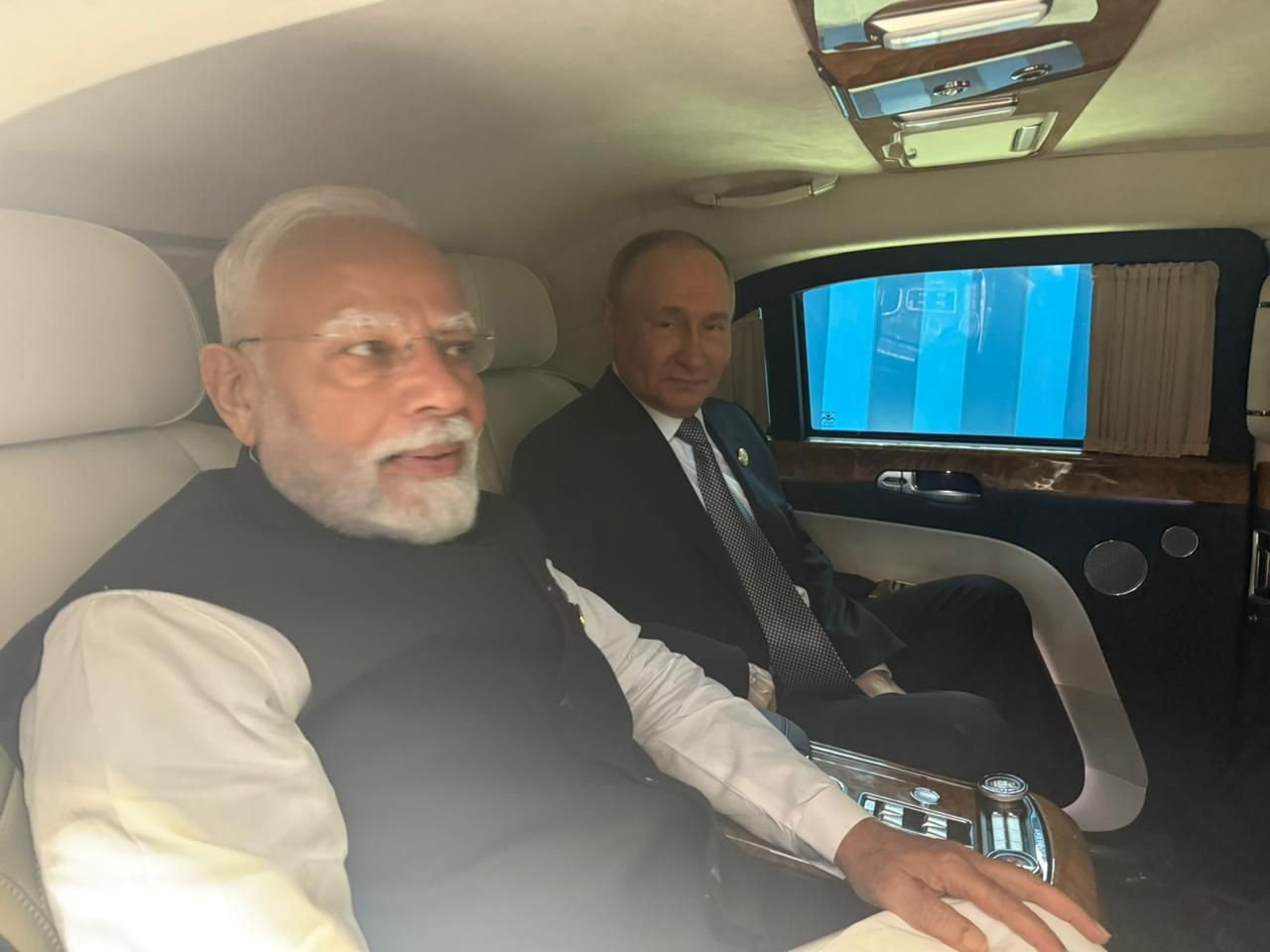Modi and Putin Push Special and Privileged Strategic Partnership in Tianjin Bilateral on SCO Sidelines
Indian Prime Minister Narendra Modi met Russian President Vladimir Putin on Monday in Tianjin on the sidelines of the Shanghai Cooperation Organisation (SCO) Summit, in a closely watched bilateral that reaffirmed the resilience of India–Russia ties.
Both leaders expressed satisfaction at the sustained growth of cooperation in trade, energy, and finance, while also discussing fertilisers, defence, space, and cultural exchanges. They reiterated their commitment to further strengthening what remains the “Special and Privileged Strategic Partnership” between New Delhi and Moscow.
 |
| Image Source: Kremlin official channel |
Modi stressed that India would back all efforts towards diplomacy and dialogue.
The bilateral came against the backdrop of U.S. tariffs of up to 50% on Indian exports over Russian crude purchases--a move New Delhi has rejected as “unjustified and unreasonable.”
Moscow has denounced the measures as economic coercion, while both sides have been working on expanding trade in national currencies and correcting a $58.9 billion imbalance.
15 years since Russia and India elevated ties to a special privileged strategic partnership, Russian Prez Putin tells PM Modi at Tianjin bilateral pic.twitter.com/4cPbnFcTbR
— Sidhant Sibal (@sidhant) September 1, 2025
After the SCO plenary, Modi and Putin were seen sharing a warm greeting before travelling together to the bilateral venue.
In a post on X, Modi described the talks as “excellent,” saying they covered “trade, fertilisers, space, security and culture” and reaffirmed that the India–Russia partnership is a “vital pillar of regional and global stability.”
Sharing my remarks during meeting with President Putin. https://t.co/PADOdRjsBs
— Narendra Modi (@narendramodi) September 1, 2025
The two leaders also agreed to intensify preparations for the 23rd Annual India–Russia Summit, with Putin expected to visit New Delhi later this year for a package of agreements spanning energy, trade, and connectivity.
